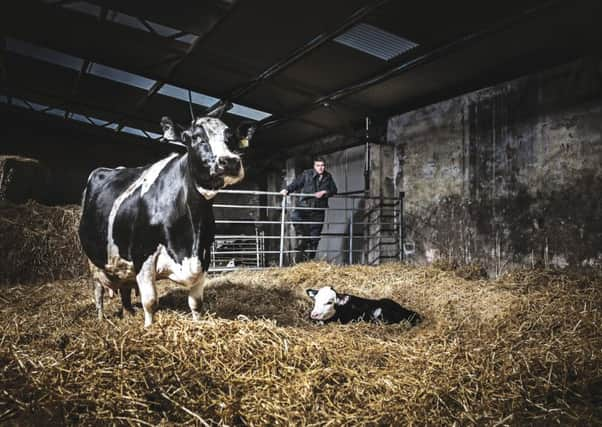Farm Safety Week:Stay safe with livestock


Animal-handling practices are often learned from watching others and from personal experiences growing up on the farm. Too often, this results in unsafe livestock handling and restraint practices. Thankfully most animal incidents are not fatal but too many men, women and children are needlessly injured every year due to a lack of safety awareness. Broken bones, crushed and mashed limbs, work absences and unnecessary medical expenses are some of the results of livestock-related incidents so, today, the Farm Safety Week team is challenging farmers to think about improving livestock handling systems and making them safer and more efficient.
From quad bike accidents to animal attacks, farming still kills and injures more people than any other industry in the UK and Ireland – On the last day of the Royal Welsh Show, Farm Safety Week shines the spotlight on working with livestock.
Advertisement
Advertisement
According to James Speers, President of Young Farmers’ Clubs of Ulster: “Two months ago we were celebrating the Balmoral Show and showcasing the most beautiful selection of livestock seen anywhere in the world competing to be crowned champion in their category but, against the background of the closing day of another massive agricultural show – the Royal Welsh Show - we are looking at the realities and risks of working with livestock.
“Over the past decade, too many people have lost their lives on our farms, in the past year alone three farmers or their family have lost their lives as a result of livestock-related incidents in Northern Ireland.
“Handling cattle always involves risks, the risk of being hurt physically by an animal that is frightened or has been startled and the risk of being hurt due to the misuse of equipment or equipment that is poorly maintained. Over the course of this week, we have worked with our partners to educate and inspire a drive to improve agriculture’s poor safety record. Today it’s all about animals. Livestock can be unpredictable, something that even the most experienced farmer can’t completely plan for. Just ask Victor Chestnutt, Deputy President of the Ulster Farmers Union, who has had his fair share of injuries caused by animals.”
Victor said: “Too many farmers think that injuries are just the price we have to pay for working with animals. That it is just part of the job. But I think we accept that all too easily and it is only when you have a serious injury, you stop to consider the true cost to yourself and the farm of being injured.
Advertisement
Advertisement
“It is really important to learn from the past and importantly to change how you do things in the future. I can tell you that there are a number of things I do now that are a direct result of previous injuries or near misses in the past. These include the redesigning of our animal handling area. We invested in a round forcing pen and placed it beside the cattle handling area so that I could work with stock from outside the pen rather than inside. We also increased wall heights to prevent the cattle from escaping when distressed and rather than entering a square pen I use the calving gate to help with the calves first feed.
“Injuries shouldn’t just be accepted as part of the job. We need to always be careful around animals and to remember we maybe aren’t just as mobile as we used to be. What might have caused a few bumps and bruises when we were young, can cause all sorts of serious damage now and leave us unable to farm again.”
“Farming is a highly rewarding industry and so vital to the UK economy but it is still one of the riskiest.” adds Stephanie Berkeley from the Farm Safety Foundation, the charity behind Farm Safety Week.
“Working safely with livestock involves much more than being “careful” around recently calved cows or cantankerous bulls. In fact, many of livestock accidents are not directly related to the animals themselves but caused by improper use of equipment of poorly maintained or poorly built facilities. Often farmers don’t make adjustments or modify ‘make do’ for economic reasons but farm safety is a lifestyle, not a slogan and ‘Because I’m in a hurry’ is not a good enough reason for poor maintenance of equipment and facilities. Safe equipment is more of an investment than an expensive luxury.”
For more information on Farm Safety Week visit www.yellowwellies.org or follow @yellowwelliesUK on Twitter/Facebook using the hashtag #FarmSafetyWeek